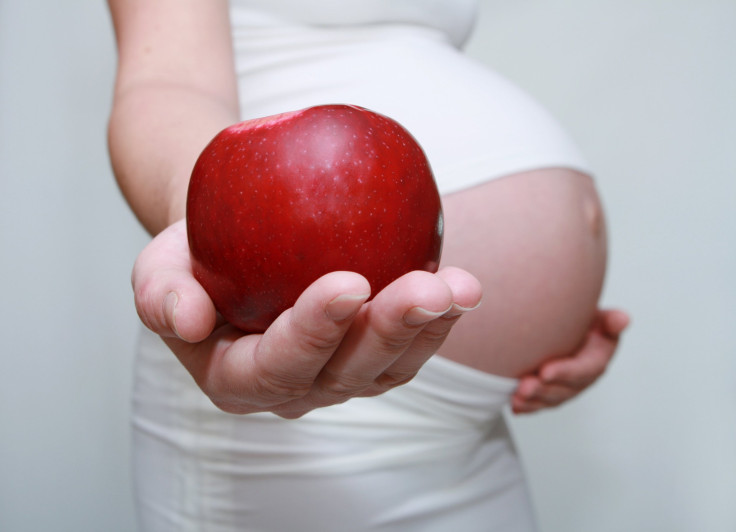A Healthy Diet May Improve Mothers' Chances Of Having A Baby With A Healthy Heart; What To Eat During Pregnancy

Once a woman finds out she’s pregnant, she becomes the baby’s gatekeeper to nutrition. Her dietary decisions transcend affecting solely her body and become the difference between having a baby with a healthy heart or a birth defect. In a new study, published in the journal Archives of Disease in Childhood, researchers from the University of Utah’s Department of Pediatrics compared mothers’ diets to their newborns’ health and found it might play an important role in heart health.
The research team studied women who participated in the National Birth Defects Prevention Study between 1997 and 2009. Half of the women had given birth to healthy babies, while the other half gave birth to babies with major heart abnormalities. Each woman’s diet during pregnancy was measured with the Mediterranean Diet Score and the Diet Quality Index for Pregnancy.
The Mediterranean Diet Score is designed to evaluate how closely a person’s diet aligns with the Mediterranean diet, which has been associated with lower rates of cardiovascular disease and cancer. Meanwhile, the Diet Quality Index for Pregnancy assesses eight components of a pregnant woman’s diet, including servings of grains, vegetables, fruits, folate, iron, calcium, calories from fat, and meal/snack patterns. Women who scored in the top 25 percent of the pregnancy scoring system (meaning they fulfilled most of the eight dietary components) had a significantly lower risk of giving birth to a baby with heart defects compared to women in the bottom 25 percent.
The study found that moms who scored high for both diet measurements by adhering to the healthiest diets were 37 percent less likely to have a baby born with tetralogy of Fallot, which is a complex abnormality that can lead to low oxygen levels in the blood. Healthy pregnant eaters were also 23 percent less likely to have a baby born with atrial septal defects, which are characterized by holes in the wall of the heart’s chambers. Unhealthy pregnancy diets have also been associated with other birth defects, like cleft palate and neural tube defects, both of which were largely preventable with a healthy diet rich in nutrients.
Healthy Eating for Two
Pregnant women need an additional 200 to 300 calories from nutrient-dense food sources, according to the Cleveland Clinic. A diet full of lean meats, low-fat dairy, fruits, vegetables, and whole grain products — as well as fewer sweets and treats — is ideal for mothers at all stages of their pregnancy.
According to the American Pregnancy Association, pregnant women need at least 70 milligrams (mg) of vitamin C a day, which is bountiful in oranges, grapefruits, kiwi, broccoli, and tomatoes. Whole grains and enriched products provide essential carbohydrates for energy and important nutrients, including vitamin B, fiber, and folic acid, the last of which can be found in fortified bread. Depending on their weight, mothers need between six and 11 servings of grains a day.
Developing babies need plenty of protein, iron, and B vitamins, which can be found in meat, poultry, fish, eggs, and beans. The Registered Dietician Association recommends about 27 mg of protein a day, preferably from lean turkey, beef, chicken, and fish. Four daily servings of dairy are also key to providing a growing baby with the nutrients it needs. This includes at least 1,000 mg of calcium a day, which is essential for building strong teeth and bones, normal blood clotting, and muscle and nerve function. Milk isn’t the only source of calcium, either; cheese, yogurt, cream soups, puddings, certain green vegetables, beans, and peas can also provide substantial amounts of the nutrient.
Source: Feldkamp ML, Botto LD, Krikov S, et al. Lower rate of selected congenital heart defects with better maternal diet quality: a population-based study. Archives of Disease in Childhood. 2015.



























